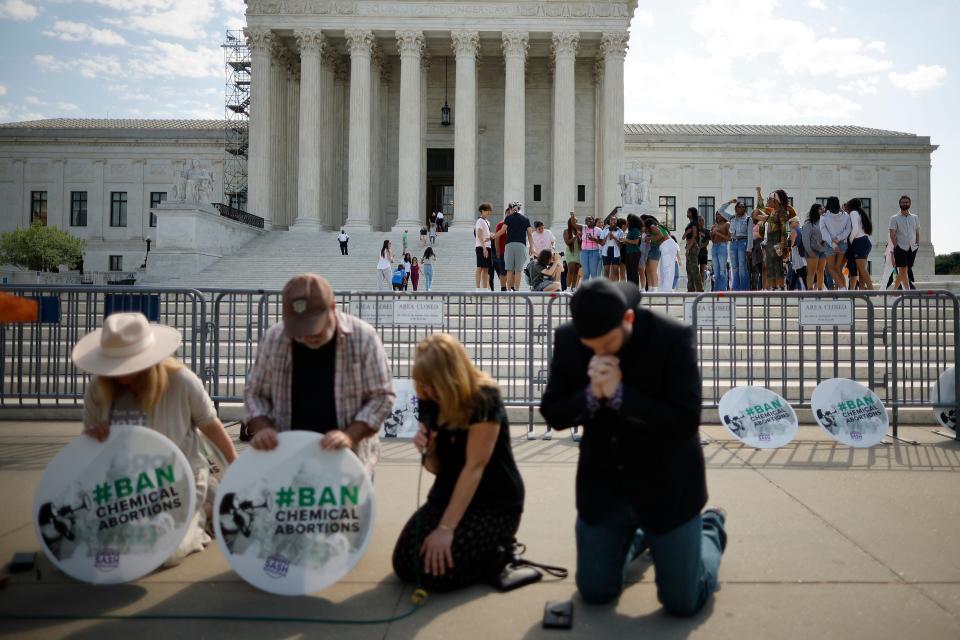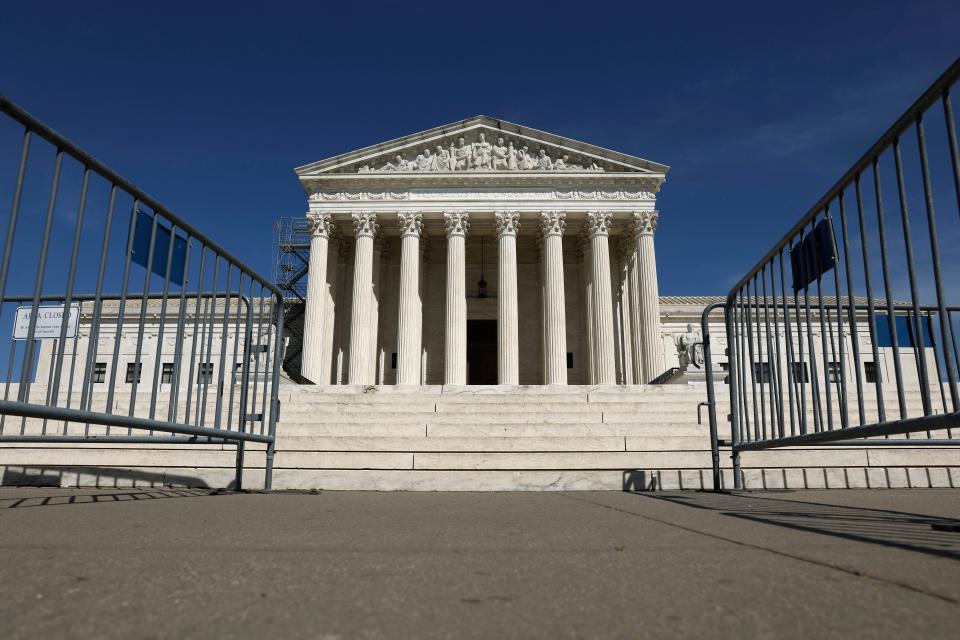Should Americans worry about the Supreme Court's 'shadow' docket? This expert says yes.
WASHINGTON ? The availability of the abortion pill mifepristone. A 12-year-old transgender girl in West Virginia who wanted to compete on the girls' cross-country team. A ban on certain kinds of semi-automatic rifles in Illinois.
The Supreme Court has weighed in on those issues and others in recent weeks on its emergency docket, sometimes referred to as its "shadow docket." Critics note that the emergency rulings ? usually preliminary ? are made without the oral argument or lengthy opinions that are the hallmarks of the court's regular, or merits docket.
Stephen Vladeck, a professor at the University of Texas at Austin School of Law and one of the nation's closest followers of the Supreme Court, published a book this month that explains the role of the emergency docket titled "The Shadow Docket: How the Supreme Court Uses Stealth Rulings to Amass Power and Undermine the Republic."
Vladeck spoke with USA TODAY about the book and why Americans should pay attention to the court's process as well as its decisions. The interview has been lightly edited for space.
Q: There’s an argument that Americans don’t really care about how the Supreme Court reaches its decisions but instead care about what the decision is. Why should Americans care about the process?
A: We actually do care about the process, even if we don't always appreciate that we care. Just to take a step back: Why do we listen to the Supreme Court? Why do we follow the Supreme Court? Why, when the Supreme Court does something that's deeply unpopular do we nevertheless abide by the decision? The answer is a bit amorphous. But the best explanation that the court itself has provided is that its legitimacy and its moral authority is directly tied to its ability to offer principled justifications for decision making. We may not agree with the principles that are articulated in the court's decisions, but at the very least, it is usually clear that they are principled. What we lose in the context of unsigned, unexplained orders that nevertheless produce these massive effects on the ground is that rationale. We lose that justification, we lose that sense that these are not just political actors, that these are jurists exercising judicial power.

Q: You open the book with a story from 1973 about Justice William Douglas dictating a ruling from a series of roadside payphones in a case dealing with the U.S. bombing in Cambodia. It’s a fascinating story. But it underscores that the Supreme Court has had an emergency or “shadow” docket for a long time. What is different about how the court is using its emergency docket now?
A: I opened the book with that anecdote partly to drive that point home. There's no way to have a court that functions like the U.S. Supreme Court without some emergency docket. But the Cambodia bombing case is an especially visible example of how it used to work, which was that individual justices would resolve the disputes on their own. They would hear arguments, often in chambers or (in the case of Douglas) in their nearest local federal courthouse. They'd write an opinion by themselves. And that had the benefit of, I think, maximizing process while minimizing impact. Because the parties had a full opportunity to be heard. The justice had a full opportunity to consider what they were being asked to do. And no one mistook what one justice did as being somehow a precedent from the full court.

What has changed has changed in two steps. Step one ... was a shift toward full court resolution with less process and less transparency. And then step two really happens in the Trump administration, which is where those pathologies that had become deeply ingrained in death penalty cases start seeping over into non-death-penalty cases where instead of it being about whether one prisoner in one state will or will not be executed, it becomes about whether a nationwide immigration policy that lower courts have blocked will or will not be allowed to go into effect. Will President (Donald) Trump be allowed to build his border wall? Will California be allowed to have their COVID mitigation measures? Will President (Joe) Biden be able to have the OSHA vaccination mandate? That shift may not have felt like a huge shift to some of the justices, but it's a huge shift from the perspective of the impact that these unexplained, unsigned rulings are having.
Case tracker: Race, religion and debt: Here are the biggest cases pending at the Supreme Court
Q: Justice (Samuel) Alito pushed back on some of this criticism in 2021. Part of what he noted was that these cases come up from lower courts and the Supreme Court gets them on appeal and they have deal with them somehow. How much is the Supreme Court itself to blame for the emergency docket versus changes in the broader legal system?
A: We should note that Justice Alito’s speech was a response to the public pushback to the (Texas) SB 8 (abortion) ruling. Those things were related. That sentiment is, I think, fascinatingly both right and wrong. There are elements of truth and also deception in that statement. So, yes, the justices are not the ones bringing these disputes to the court. The justices are not the ones filing the applications for emergency relief. But they are the ones who are granting them. And, you know, it was a really profound turning point ? and I think the book tries to document this ? that as the Trump administration started going to the court for emergency relief more and more often the justices kept acquiescing.
The history of the last six years at the Supreme Court would have looked a lot different if relatively early in those Trump cases the court had pushed back and said, 'you know, hey now, like emergency relief is supposed to be for emergencies. Your ability to not carry out one of your policies, by itself, is not an emergency.’ So Alito is 100% right, that the supply has to come from elsewhere. ... But I think it's not fair to take him and his colleagues off the hook for acquiescing and for basically signaling over and over again that the court was open for business.
SB8 Texas abortion ruling renews criticism of Supreme Court's 'shadow docket'
Q: What are one or two things that could create more transparency in this part of the court’s work?
A: There's one for the court and one for Congress. From the court’s perspective, I really do think that the justices should commit, even informally, to provide at least some rationale any time they are going to grant an emergency application. It’s one thing to not explain a denial, where all you're doing is leaving intact the last word of the lower court. But when the justices are themselves disrupting the status quo, I really do think it's incumbent on them to provide at least a modicum of explanation.

There's a lot Congress can do. ... Part of what's happened on the shadow docket is a symptom of how little Congress exercises authority over the court’s docket anymore. That's reflected not just in the shadow docket. It's reflected in this decline (of cases being heard) in the merits docket. Having Congress getting back into the business of being part of this interbranch conversation about the shape and structure of the court’s docket can only be a good thing.
This article originally appeared on USA TODAY: Supreme Court expert questions 'shadow docket' in new book
